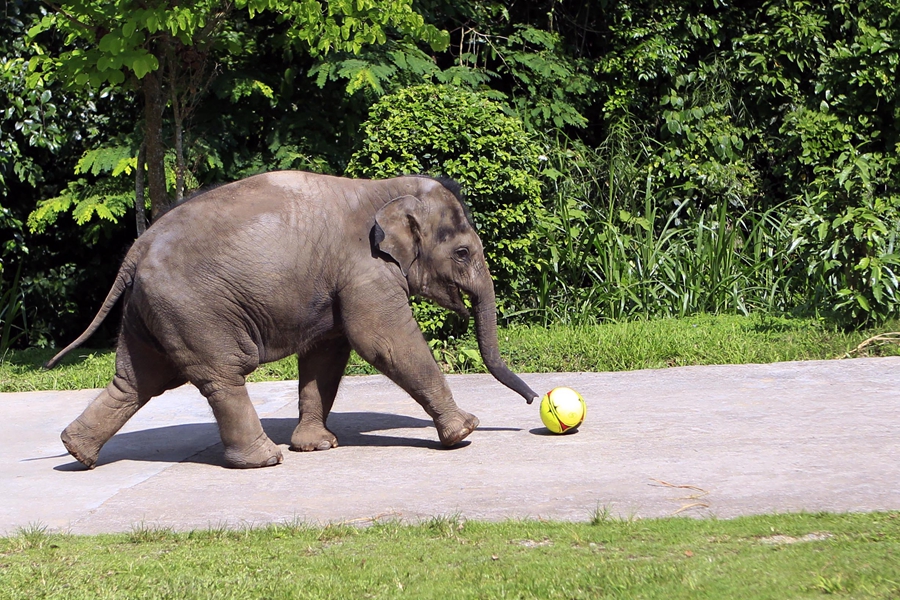China on the way to revive majesty of Asian elephants


"Population growth, reclamation expansion, and a decrease of habitats for wild elephants are the primary causes for the conflicts," said Chen Mingyong, a professor at Yunnan University.
The simple digestive system of Asian elephants makes them easy to feel hungry. They have to eat about 300 kg of plants every day. "If the forests can't meet their needs, they may risk stepping into farmland to fill their belly," according to Chen.
The increase in the number of wild Asian elephants in recent years comes with more activity, and an overlap of animal habitats and places of human activities.
"Some rivers and valleys have been turned into farmland for rubber, tea, and corn for economic benefits. Infrastructure construction destroys the homes of wildlife animals," Chen said.
- Global gathering of Cantonese people opens in Guangdong
- China's draft airline rules represent progress for wheelchair users
- China steps up efforts to tackle wage-withholding employers
- Taicang factory builds inclusivity
- Scientists discover important Early Jurassic dinosaur tracks
- China's Shenzhou XXII spaceship docks with space station combination





































